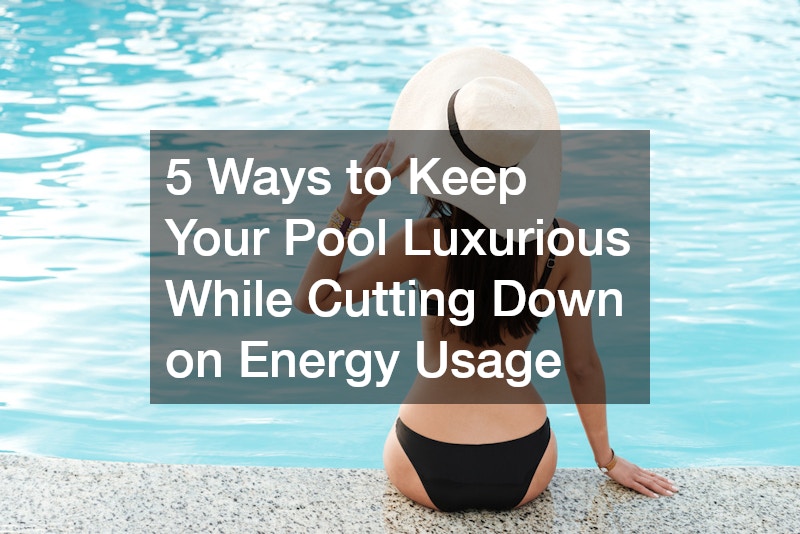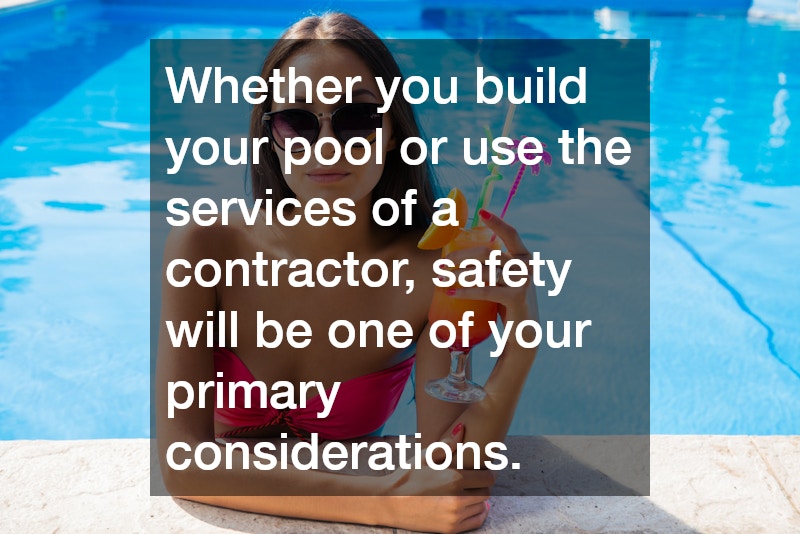

Many homeowners enjoy upgrading their backyards with a swimming pool installation. Your family and friends will have fun in your pool, and you can exercise and play games while staying cool in the summer months. Some homeowners wonder if they should buy choose of the inground pool packages and install the pool themselves. If you have the skills to do so, go ahead and gather the appropriate swimming pool materials and construction tools – and install your pool.
If you’re trying to decide which size pool to install, your family size may be one of the determinants. However, your budget will also play a part when deciding between small, large, or medium pools. Those who want to plan for spectacular custom backyard pools will most likely need some help from a pool contractor.

Whether you build your pool or use the services of a contractor, safety will be one of your primary considerations. Be sure you know how to balance the chemicals in your pool, and that you have sufficient maintenance tools to keep your pool clean. You’ll also need to be sure you install a fence or other safety barrier to keep people from falling into your pool.

Cutting down on energy use is very important these days, and not just for financial reasons. But anyone who has owned a pool knows that they can use quite a bit of electricity. Fortunately, there are many ways to make your pool more energy efficient, meaning you can cut down on your energy use without sacrificing comfort or looks. Here are five ways to boost your pool’s energy efficiency and enjoy a guilt-free summer of swimming:
- Cover Your PoolOne of the best ways to improve the energy efficiency of your pool is to install a pool cover. This will reduce pool heating costs, as well as evaporation. Evaporation is a major problem because quite a bit of energy has already been spent treating and preparing the water that’s in your pool — meaning that when you add more water to your pool, you’re also going to be using quite a bit of energy. There are numerous pool cover options available these days, from old-fashioned manual ones to automatic covers operated at the touch of a button.
- Install a WindbreakWind blowing across the surface of your pool also causes evaporation. You should already have a fence around your pool for safety reasons, but adding screening or climbing plants to that fence will cut down on the wind that gets in. Your pool area will become more comfortable and more private, too.
- Get a More Efficient PumpSometimes, efficiency just comes down to technology. Buying better pool equipment, such as an energy-efficient pool pump, is a good investment when it comes to both the environment and your electricity bills.
- Use LED Pool LightingLED pool lights don’t look any different than standard ones, but they use far less energy. LED bulbs last 40 times longer than incandescent bulbs, too. And if that weren’t enough, LED pool lighting now comes in myriad colors, so you can use lighting to dress up your outdoor decor and make your pool more visually appealing. It’s hard to argue with all those benefits.
- Clean the Filter RegularlyMaintenance is key when it comes to the efficiency of any electrical system, and your pool is no different. You can keep debris from reaching your filter in the first place by skimming the pool’s surface regularly, and scheduling a backwash every once in a while (reversing the system to remove clogs) will help as well. You’ll also need to manually clean the filter, or ensure that your maintenance team is doing so.
How else can pools be made more energy efficient or otherwise environmentally friendly? Share your ideas in the discussion below.